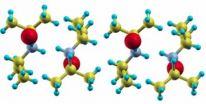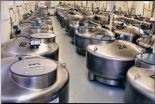(Press-News.org) "We see functional stupidity as the absence of critical reflection. It is a state of unity and consensus that makes employees in an organisation avoid questioning decisions, structures and visions", says Mats Alvesson. "Paradoxically, this sometimes helps to raise productivity in an organisation."
Together with colleague André Spicer, Mats Alvesson has written an article entitled 'A Stupidity-Based Theory of Organisations', which was recently published in the renowned Journal of Management Studies and has been featured in the Financial Times. In the article, he expounds the logic behind 'functional stupidity'.
"It is a double-edged sword. It is functional because it has some advantages and makes people concentrate enthusiastically on the task in hand. It is stupid because risks and problems may arise when people do not pose critical questions about what they and the organisation are doing."
The state is partly a consequence of a kind of 'stupidity management', which suppresses and marginalises doubt and blocks open communication within the organisation. The parallels with some companies' sudden financial crashes in recent years are clear.
"Short-term use of intellectual resources, consensus and an absence of disquieting questions about decisions and structures may oil the organisational machinery and contribute to harmony and increased productivity in a company. However, it may also be its downfall."
According to the researchers, some industries are more stupid than others. Organisations that make a virtue of their staff's wisdom and sell intangible services or branded products, such as parts of the mass media, the fashion industry and consultancy firms, are highlighted as being particularly disposed to develop functional stupidity.
"Functional stupidity is prominent in economies that are dominated by persuasion using images and symbolic manipulation. It is preferable that people have an enthusiastic belief in an activity which may not necessarily fulfil a need. New management may be required to manage the fine balance and possible pitfalls of functional stupidity", says Mats Alvesson.
### Contact details:
Mats Alvesson, Professor of Organisation Studies at the School of Economics and Management, Lund University
Telephone: +46 46 222 42 44
Email: Mats.Alvesson@fek.lu.se
Articles:
Link to article: 'A Stupidity-Based Theory of Organisations', published in the Journal of Management Studies: http://onlinelibrary.wiley.com/doi/10.1111/j.1467-6486.2012.01072.x/abstract
Link to Andrew Hill's column 'The Quest for the Right Kind of Stupidity' in the Financial Times: http://www.ft.com/cms/s/0/2cefbab2-5b23-11e2-8d06-00144feab49a.html#axzz2Ib7RPT95
Smart organizations should also be stupid according to new theory
2013-01-28
ELSE PRESS RELEASES FROM THIS DATE:
Progressive optics for side mirrors ends automobile blind spots without distorting view
2013-01-28
WASHINGTON, Jan. 28, 2013—A new optical prescription for automobile side-view mirrors may eliminate the dreaded "blind spot" in traffic without distorting the perceived distance of cars approaching from behind. As described in a paper published today in the Optical Society's (OSA) journal Optics Letters, objects viewed in a mirror using the new design appear larger than in traditional side-view mirrors, so it's easier to judge their following distance and speed.
Today's motor vehicles in the United States use two different types of mirrors for the driver and passenger ...
Pandemic controversies: The global response to pandemic influenza must change
2013-01-28
'Evil' scientists, deadly viruses and terrorist plots are usually the preserve of Hollywood blockbusters. But when it comes to pandemic influenza, it is the stuff of real life. As controversy about research into the H5N1 bird flu virus continues, a new paper argues for a complete overhaul of current approaches to pandemic preparedness.
To Pandemic or Not? Reconfiguring Global Responses to Influenza, by Dr Paul Forster, of the ESRC STEPS Centre, investigates the H1N1 swine flu pandemic of 2009-10 and sets out some vital lessons if we are to prepare for pandemic influenza ...
Fewer people adding salt at the table
2013-01-28
The number of people in England adding salt to food at the table fell by more than a quarter in the five years following a national campaign, according to research published in the British Journal of Nutrition.
In 2003, the UK Food Standards Agency and the Department of Health launched a national salt reduction campaign to raise public awareness of the impact of salt on health and to work with the food industry to reduce the amount of salt in processed foods.
Although previous research found that the national campaign led to an overall reduction in salt intake, this ...
Novel materials: Smart and magnetic
2013-01-28
Novel, smart materials like shape memory alloys very often display so-called glass-like magnetism. Other smart materials with similar properties include those which, when exposed to a magnetic field, change their electrical resistance, known as manganites, or change their temperature, known as magnetocaloric materials. Kaustav Mukherjee and his colleagues from the Consortium for Scientific Research Indore in India studied a key stage in the formation of such a magnetic glass material, called Pr0.5 Ca0.5 Mn0.975 Al0.025 O3, in a paper about to be published in EPJ B.
They ...
A new material for environmentally friendlier electronics
2013-01-28
The electronics industry has a remarkable impact on the environment, yet research is devising new solutions to reduce it. Among these, a new compound with an unutterable name, the diisopropylammonium bromide (DIPAB), a new ferroelectric material created by an international team of researchers that include Massimo Capone and Gianluca Giovannetti of Istituto Officina dei Materiali at CNR and of the International School for Advanced Studies of Trieste (SISSA), whose research has been just published in Science magazine.
"A ferroelectric material has properties analogous ...
A safer way to vaccinate
2013-01-28
CAMBRIDGE, MA -- Vaccines usually consist of inactivated viruses that prompt the immune system to remember the invader and launch a strong defense if it later encounters the real thing. However, this approach can be too risky with certain viruses, including HIV.
In recent years, many scientists have been exploring DNA as a potential alternative vaccine. About 20 years ago, DNA coding for viral proteins was found to induce strong immune responses in rodents, but so far, tests in humans have failed to duplicate that success.
In a paper appearing in the Jan. 27 online ...
Some health benefits of berries may not make it past your mouth
2013-01-28
COLUMBUS, Ohio – Research has suggested that compounds that give colorful fruits their rich hues, especially berries, promote health and might even prevent cancer. But for the first time, scientists have exposed extracts from numerous berries high in those pigments to human saliva to see just what kinds of health-promoting substances are likely to survive and be produced in the mouth.
It's too early to name the best berry for health promotion based on this initial work. But the researchers have discovered that two families of pigments that provide berries with their colors, ...
Soya protein can be replaced by rapeseed protein
2013-01-28
Jena (Germany) Today, more than 500 million people are suffering from a lack of adequate protein in their diet. Each year, the number of human beings increases by 80 million, a figure which is equivalent to the present population of Germany. Thus, providing enough food, particularly sufficient protein for the increasing populace is a challenging task for societies all over the world. On a prospective basis, a progressively smaller proportion of human protein requirement can be provided by animal proteins such as meat, eggs, and milk. "However, by feeding valuable plant ...
Study of human specimen collections in the US offers first look at their huge diversity
2013-01-28
Chapel Hill, N.C. – Biobanks are organizations that collect, store and share human specimens (e.g., blood, solid tissues, hair) for research purposes. The rise of the human genome project and of large-scale genetics studies have spurred a dramatic increase in the number of biobanks in the last decade, increasing their importance in biomedical research.
But until now, biobanks in the U.S. have never been studied systematically, leaving few clear details as to how they are run or the policies and practices they use in managing their work.
A new study from the University ...
Discovering the missing 'LINC' to deafness
2013-01-28
Tel Aviv — Because half of all instances of hearing loss are linked to genetic mutations, advanced gene research is an invaluable tool for uncovering causes of deafness — and one of the biggest hopes for the development of new therapies. Now Prof. Karen Avraham of the Sackler Faculty of Medicine at Tel Aviv University has discovered a significant mutation in a LINC family protein — part of the cells of the inner ear — that could lead to new treatments for hearing disorders.
Her team of researchers, including Dr. Henning Horn and Profs. Colin Stewart and Brian Burke of ...




